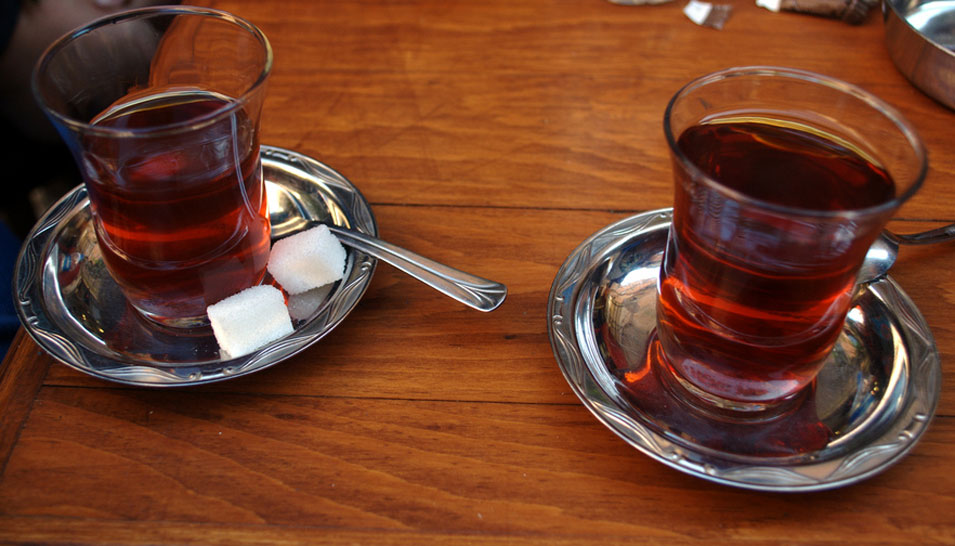
Traditional Saudi Arabian “sweet tea” is aptly named. It is beloved by children, but I suspect it can be lethal to diabetics of any age.
When expatriates describe their experiences to the less traveled, it often starts with food.
In Saudi Arabia, because the traditional cuisine is so minimalist — spare, unpretentious fare derived mainly from ancient nomadic bedouin culinary habits — only two items come quickly to mind: kabsah and sweet tea.
Kabsah is a mild but delicious melding of white rice; mutton, lamb or camel meat (and sometimes chicken); pine nuts; and golden, raisin-like sultanas. It is the cultural go-to entrée in Saudi Arabia.
In the fifties and sixties, and even today, when Westerners attend traditional Saudi gatherings where a meal is offered — known affectionately by Westerners as a “lamb grab” or “goat grab” — kabsah is often served. It arrives on a large platter to be placed on the ground, and sometimes its tender camel calf lies on a bed of rice.
At a “lamb grab,” all attendees eat with their hands, which requires particular skill, especially when eating rice. This is the process: You squeeze some of the sticky stuff in the rough tube created within the curled fingers of your fist; then, using the thumb, you quickly slide the rice “tube” upward into your mouth. In theory. Usually, when expats do it, more rice ends up back on the platter than in the mouth.
After the main feasting, slightly bitter, cardamom-laced Arabic coffee is served in tiny, handle-less cups holding about a cupped-palm’s worth of liquid.
Bedouin traditionally grind the roasted beans with a mortar and pestle and then brew the grounds in boiling water over a campfire. In summer, with throats hot and parched, nothing in the world cuts the dust better, in my opinion.
Sweet tea — and by “sweet” I mean, like, pure-sugar sweet — is also offered before and after meals, and at random other times as well.
With what I know now, I suspect it’s lethal to diabetics. But as a kid, I experienced it as completely benign, liquid candy. Still do. And I have diabetes.

Author's Bio: With his recently-published set of colorful recollections, 3,001 Arabian Days: Growing up in an American Oil Camp in Saudi Arabia (1953-1962), A Memoir, Aramco Brat and annuitant Rick Snedeker (Badge Number 199932) joins a distinguished list of Aramcons who have captured their memories of life in the Kingdom on paper. As the title indicates, Rick focuses on his growing-up years in Dhahran as the son of Albert Coleman Snedeker—known as “Big Al” to his friends—a manager in the Aramco Traffic Department responsible for keeping company camps well-supplied with the foodstuffs and sundry necessities of daily life throughout Aramco’s critical growing-up years in the ’50s and ’60s. As Aramco grew to maturity, so did Rick.
